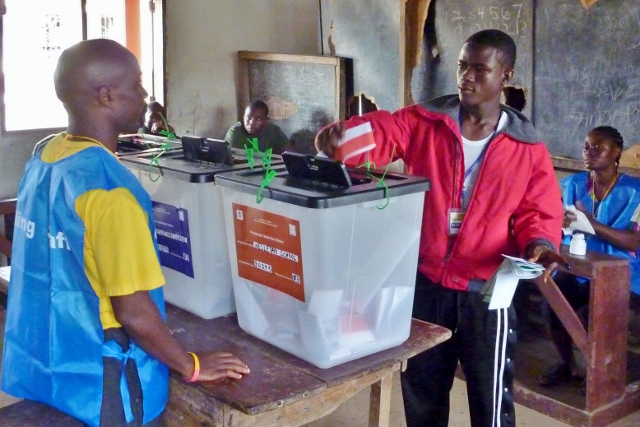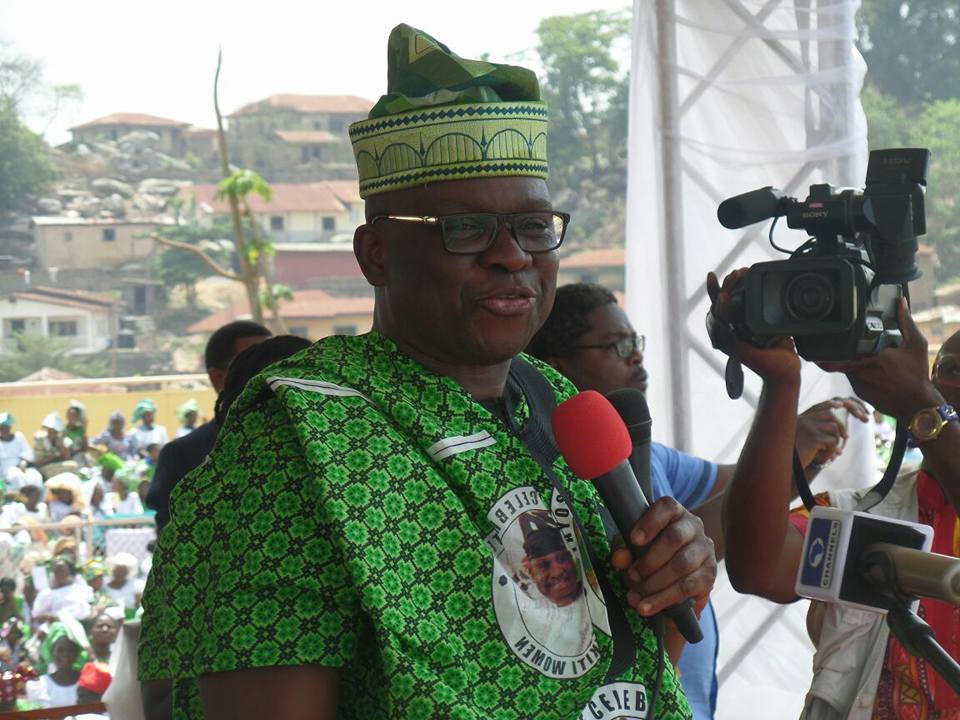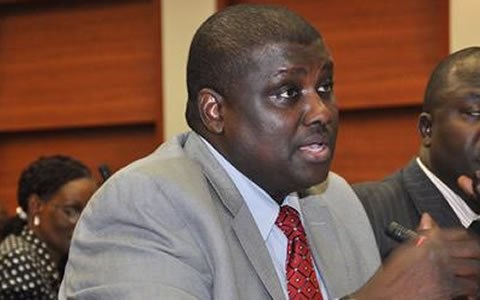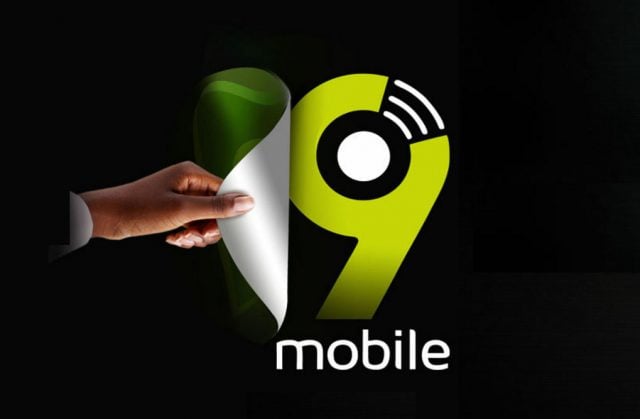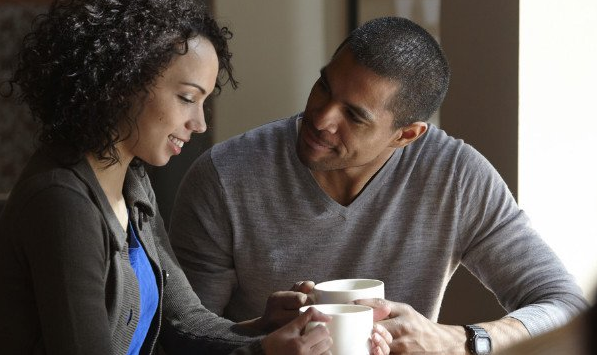BY UDO JUDE ILO
Jay peered at me from the burglary proofed window of Lango Lippaye Public School. You could feel his excitement. It was a non-school day because of the elections. The adults were all busy queuing up in lines to vote so Jay had time on his hands to play around. He actually called out to me seeing me in my election observer jacket. I asked Jay what he was doing at the voting center. He answered with a mischievous smile. “I am here to vote”. Jay is only twelve and cannot vote. He was only goofing around. He told me he wished he could vote. “Who would you vote for?” I asked.
He quickly responded without hesitation. He told me everybody in his family is voting for this candidate and that he is voting for this candidate because he is the wining candidate. What stood out for me in my conversation with Jay was the excitement and hope that he had in the election. Liberia was having their third election since after the war and for the first time since the 1940s, an opportunity to have a democratic transfer of power from one President to another. Everywhere we went in Liberia on the day of the election, people were hopeful that this election will be the beginning of better days.
Liberia deserves a break. Its history has been a tragedy of errors and of missed opportunities. With more than a century of independence, Liberia still ranks amongst the poorest countries in the world. Liberia sits on 177th position in 2015 on Human development Index ranking. Nearly a decade of civil war which exposed its fractured ethnic relationship all but destroyed the country. The recovery process was shaken by the Ebola outbreak that nearly collapsed the fragile institutions of governance and social services. About 4809 Liberians lost their lives. Since Ebola, the country has been on a difficult recovery path. Corruption has not permitted the maximum utilization of scarce resources; politicians appear more committed to self than the public good. Poverty and unemployment continue to increase. In spite of the best efforts of current administration, infrastructural gaps are gaping and revenue streams are limited. Against this background, the election provided an opportunity for citizens to have their say in the way they are governed and their commitment to a better future. The massive turn-out of citizens showed that the election was taken seriously and that people are aware of the stakes. About 75 percent of registered voters turned out to vote.
Advertisement
The conduct of the election was generally peaceful. There was a determination by voters that the election must be fair and peaceful. Peace messages flooded the streets of Monrovia and most voters that I interacted with were emphatic that they don’t want violence anymore. Liberia’s future must be determined through the ballot. It showed clearly that citizens have learnt their lessons and want a future radically different from their past; they are tired of the non-progression of their lives. The patience exhibited by Liberians in the polls was remarkable. For somebody from Nigeria, certain things just seemed strange- watching the tally of voters long into the night without police presence was a humbling and instructive experience for me. One cannot but commend the level of decorum that Liberians exhibited. The process was in no way perfect. There were logistical challenges occasioned in most part by difficult access to the hinterland. There were cases of missing names in the register and sometimes confusion about the rules. None of this can take away from the overall performance of Liberians in ensuring that the election went well. The youths that manned most of the polling stations displayed fairness, independence and uncommon dedication. Everywhere we went, you would see the strain of their long hours of assignment but also their dedication to get it right. Seeing this level of patriotism and dedication by the Liberian youths, it is fair to say that Liberians future would be better than it’s past. The resilience and commitment of Liberians is bigger than the problems facing them. The way the elections were conducted provides a lot of lessons for Liberians and also their neighbors going into election soon.
As was predicted, the outcome of the elections has pitched the ruling Unity Party candidate Mr. Boakai and the Coalition for Democratic Change candidate George Weah in a runoff election. Though Mr. Weah got the highest number of votes, he was not able to garner 50 +1 percent of the vote which is what is needed to win the presidential election. Now Liberians’ choices have been limited to these two candidates. Each candidate is trying to build a coalition with the other political parties. This is a unique opportunity for Liberia to define and determine the kind of leadership they want going forward. The enthusiasm showed in the first round of elections reinforces the fact that Liberians are keen to have a country better than what they have right now. It imperative that the consideration for support for the candidates should be about what they have to offer Liberia and not for ethnic sentiments or other parochial considerations. The history of violence in Liberia has a huge undertone of ethnic coloration. It should not be a consideration in building a new country going forward.
The politicians in Liberia will need to understand the mood of the nation, appreciate the commitment to democracy which has been demonstrated by citizens and the desire for inclusive development which the country so rightly deserves. By their turn out and conduct during the elections, Liberians sent a strong message that they want a peaceful democracy. The candidates need to be clear on what kind of leadership they want to provide and citizens should now ask the important questions about what the candidates are offering. The proposed public dialogue on the ‘kind of President Liberia needs’ which is being planned by the Deepening Democracy Coalition is so timely and should be embraced by the candidates. It is a unique opportunity for Liberians to hear from their aspirants and communicate to them the kind of leadership they want. Citizens should not go home after the elections and wait for another election cycle. They must hold the parties and elected officials accountable to the campaign promises they have made. Interestingly, groups like the Election Coordination Committee (ECC) and the NAYMOTE are documenting campaign promises and hope to establish a President Meter- an evaluation system that will allow them see how far their President is keeping to his campaign promises. This effort will promote a new culture of accountability in the post-election environment which will help Liberians ensure they have a responsive government.
Advertisement
Jay and kids like him deserve a future better than their parents’ past. The job of ensuring that his enthusiasm and excitement translates to a reality of hope depends not just on the candidates vying for the highest office in the land but more on citizens who need to make it clear to their government that they deserve better and are willing to ensure that government is answerable to them both on the election day and after the elections.
Udo Jude Ilo heads the Open Society Initiative for West Africa’s (OSIWA) Nigeria office. @udoilo
Add a comment
